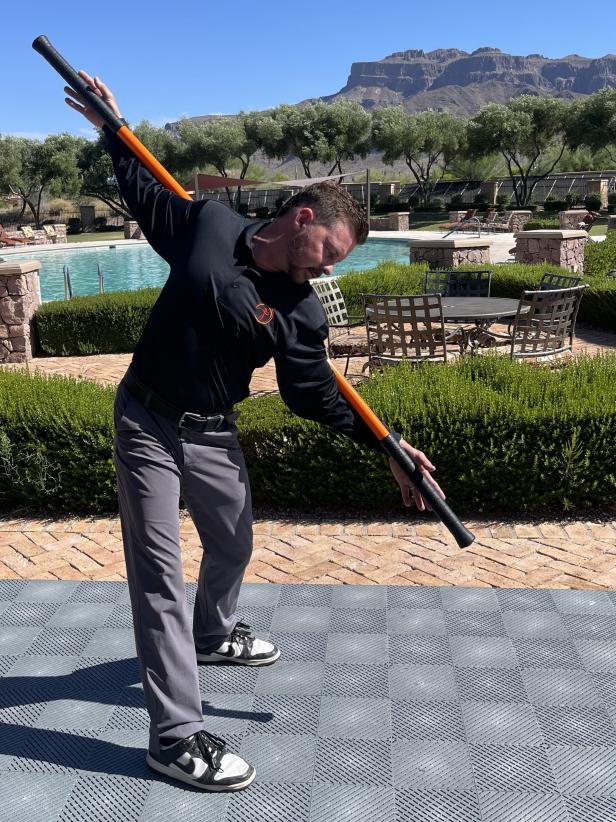Between your job, your house chores, your kids’ sports schedules, oh, and your desire to play as much golf as possible, it’s no wonder that one of the first things you eliminate from your weekly calendar is gym time.
Golf Digest Certified Fitness Trainer Zach Gulley (above) gets it. A big part of his job is to make sure his clients get what they need to stay fit and ready for golf, but he also has to temper that focus by being cognizant of time constraints. With that in mind, his philosophy is to “cut to the chase,” so to speak, and offer golfers exercise programs that specifically enhance their ability to play.
“I have always thought skill greatly outweighed exercise selection when it comes to getting average players better, so I’ve gone much more down the path of finding exercises that influence skill more than force production,” he says.
Gulley’s emphasis these days is on exercises that train “rotatary forces.” And knowing gym time might be limited, he often prescribes movements that train multiple parts of the body at the same time. Think of them as “compound exercises.” By grouping movements, you’re essentially streamlining a workout into a smaller time commitment.
Five compound exercises Gulley recommends for golfers are listed here, and he demonstrates them in the video (below). Click this link to learn more about Golf Digest’s Certified Fitness Trainer program.
1) Dumbbell rotational squats and presses
“Creating more vertical ground force can greatly improve a player’s ability to stop lateral ground forces and get the most out of the speed they are creating,” Gulley says. “This exercise loads the rotary tissues in the hips, expresses power output up and from the ground and involves the upper body to press the weight last. This is a great rotational sequence drill in a vertical axis.”
2) Dumbell 1/2 RDLs with back flies and chest turns
“Early extension plagues our game and this aims to address that,” he says. “Gaining hip flexion in transition is the key to eliminating early extension and this exercise primes the pelvis to translate backward. By doing hip hinge work, I believe players gain more feeling of the pelvis working backward, which can translate to a feeling they can use on the course. Using a dumbbell to do a back fly at the body opens the chest, slightly rotates the pelvis, and helps get the pelvis turning more on the tilt needed for the spine to require less side bend.”
3) Propellor turns in golf posture
“This provides the sensation of how shoulders should be angled in the backswing and downswing,” he says. “I’ve seen this change a player’s understanding of how much tilt is needed for the chest to turn on a plane. When the chest is on plane, the arms don’t need to do so much to deliver the club in a productive way.”
4) Single-leg RDLs with band rows and chest rotations
“Many players struggle with balance and separation. This exercise strengthens the legs to accommodate rotational forces while on one foot,” he says. “Using a band on a horizontal plane, you can create a great challenge on the row portion of the move and add some rotation with the row to combine some separation work. This is an awesome total-body exercise and when I see people gain competence with it, they improve all areas of movement [in the golf swing].”
5) Banded spin lunges with chest presses and rotations
“This exercise combines a rotationally loaded leg exercise with a chest press. I love training the trail side of the body, because it exposes the trail hip to internal rotation and hip flexion initially, then translates into a glute-drive, hip-extension-based pattern that shoots the forces out of the chest. We know the glutes provide a big role in rotation in the golf swing and that the trail pec is one of the most active muscles during the entire swing.”
The Hit List
The best of Golf Digest delivered daily
Will be used in accordance with our PRIVACY POLICY

